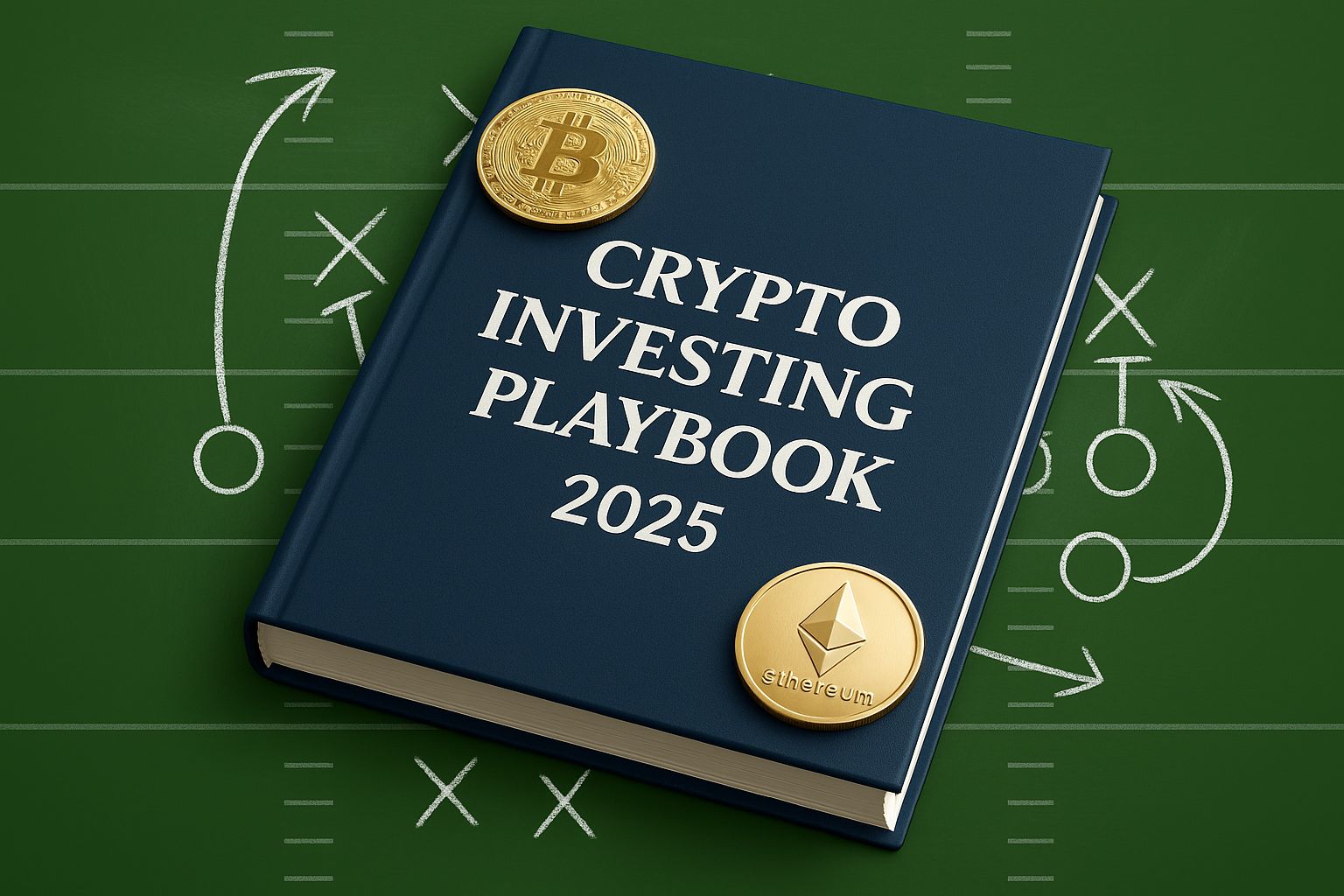By Hilton Bakedman, Economics Humorist and Freelance Friedman Impersonator
A Roast Fit for the American Economy
Treasury Secretary Scott Bessent, the man who moonlights as the economy’s toughest comedy critic, dropped a bombshell this week: the Federal Reserve should stay independent, but oh boy, it has made a lot of mistakes. From botched interest rate timing to a jaw-dropping $2.5 billion Fed headquarters renovation, Bessent’s critique is a must-hear for anyone even vaguely interested in the US economy and the Fed’s role in it.
But first let’s hear from our sponsor:
Get The Crypto Playbook for 2025
Keeping up with crypto while working a full-time job? Nearly impossible.
But Crypto is on fire and it’s not slowing down, with the industry having just hit a record-high $4 trillion dollar market cap.
And we’re sharing it at no cost when you subscribe to our free daily investment newsletter.
It covers the new Crypto bills that just passed and all the top trends, including the altcoin we think could define this cycle. That’s right, you can catch up on the industry in 5 minutes and still take advantage of this record bull run.
Skip the noise and stay one step ahead of the crypto and stock market.
Stocks & Income is for informational purposes only and is not intended to be used as investment advice. Do your own research.
Did the Fed Miss Their Cue on Rate Cuts?
Bessent’s Critique: Too Late, Too Cautious
According to Bessent, the Fed’s approach to interest rate policy has been about as agile as a sloth on sleeping pills. He claims that outdated data caused the Fed to delay vital rate cuts that should have occurred in June and July. “If we had more current labor statistics, we could have supported the economy better by cutting rates earlier,” he said. This delay, critics argue, hindered economic growth and frustrated markets hungry for stimulus.
Expensive Remodels: Central Bank’s Pricey Punchline
The Fed’s costly $2.5 billion renovation of its Washington D.C. headquarters is not just a jaw-dropper because of the price tag, but also because of the controversy over Fed transparency and fiscal management. Bessent didn’t hold back, suggesting the Fed was spending more on real estate than on keeping the economy humming along smoothly.
Markets React: Slapstick or Slip-Up?
After Bessent’s comments on the Fed’s timing of interest rate moves, the financial markets responded like a comedy audience that just got an unexpected roast—by tanking. Major indexes like the S&P 500 and the Dow Jones fell sharply, erasing trillions in value. But Bessent urged calm, calling the market volatility a “healthy correction” and reminded investors that stock markets have a habit of bouncing back—just like a good punchline eventually lands.
Who Should Care? (Spoiler: Everyone)
Key Takeaways for Consumers
The big question for shoppers and homebuyers? If the Fed finally does cut rates faster, expect mortgage rates and borrowing costs to drop, which might make that dream home or new car a little more affordable. For now, it’s wise to keep an eye on Fed moves and expect some short-term uncertainty in lending markets.
What This Means for Economists
Economists probably won’t lose sleep just yet since Bessent openly questioned the practical value of some Fed economists' work, joking, “I don’t know what they do. Feels like universal basic income for academic economists.” Looks like even the Treasury Secretary thinks some of their forecasts have missed the mark.
Marketers: Opportunity or Meltdown?
Volatility in interest rates usually means shifts in consumer behavior, creating both headaches and opportunities for marketers. With the Fed under the spotlight, savvy marketers can leverage anxiety and spending shifts—think promotions around financing deals or flexible payment plans. It’s chaos, but chaos can sell.
The Bottom Line
Scott Bessent’s blunt but humorous smackdown of the Fed is a reminder that central bankers, despite their PhDs and fancy offices, can fumble the basics like any of us. For consumers, economists, and marketers alike, the key lesson is simple: timing matters in economic policy, transparency matters in spending, and market reactions—even the dramatic ones—are part of the game. If the Fed can learn to deliver its punchlines (rate changes) on cue, maybe the next act will be less of a comedy and more a well-rehearsed drama.
Suggested FAQ for Google Meta (Structured and SEO-friendly)
Q1: What mistakes did Treasury Secretary Scott Bessent say the Federal Reserve made?
A1: Bessent criticized the Fed for delaying interest rate cuts, which slowed economic growth, and for the controversial $2.5 billion Fed headquarters renovation.
Q2: Does Scott Bessent support Federal Reserve independence?
A2: Yes, Bessent strongly supports Fed independence but insists the institution must be held accountable for its errors.
Q3: How did markets react to Bessent’s comments on the Fed’s rate timing?
A3: Markets initially dropped sharply, erasing trillions in value, but Bessent described the selloff as a healthy correction and urged investors to stay calm.
Q4: What’s the key takeaway for consumers from Bessent's critique of the Fed?
A4: Consumers should watch for potential rate cuts that might lower mortgage and loan costs, but short-term economic volatility may persist.
Q5: Why is Bessent calling for a review of the Federal Reserve?
A5: He wants a full evaluation of the Fed’s overall effectiveness and transparency, beyond just the recent renovation controversy.

